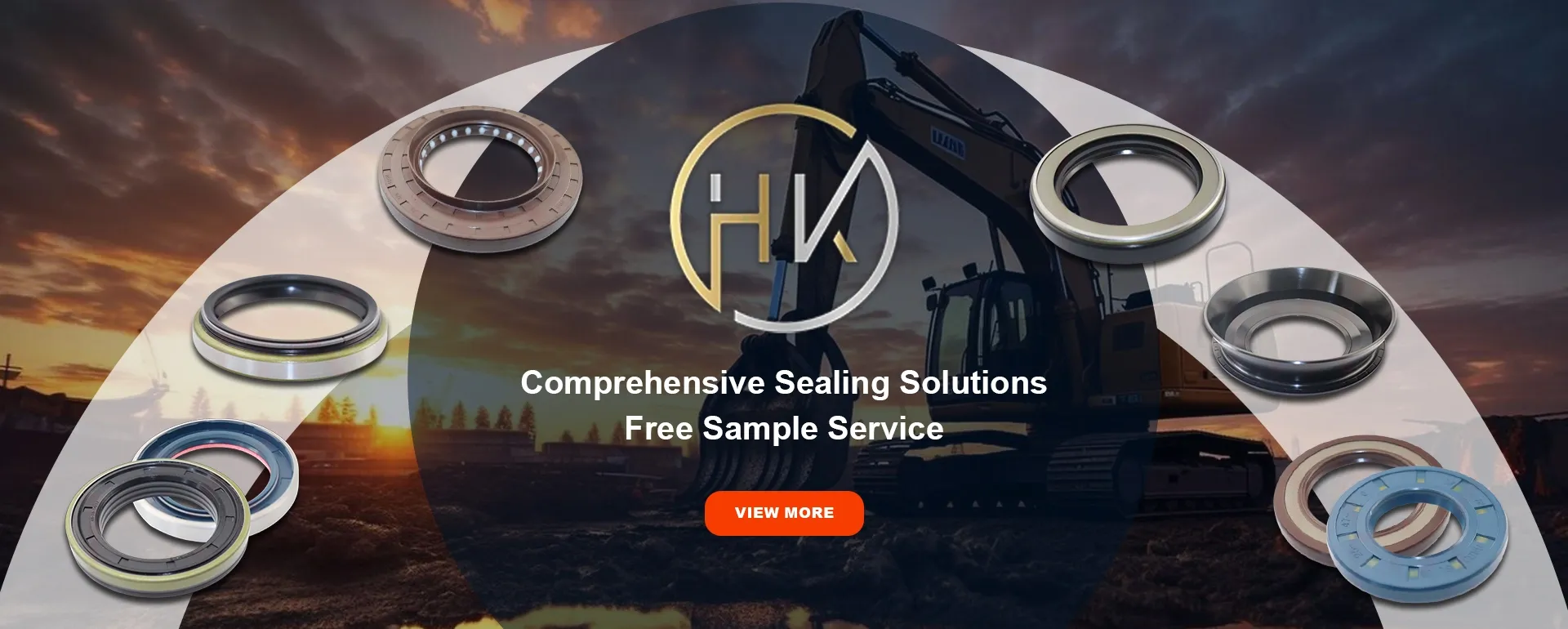Dec . 16, 2024 09:26 Back to list
oil seal
The Importance of Oil Seals in Machine Performance and Maintenance
Oil seals, often referred to as shaft seals, play a critical role in the functionality and longevity of various mechanical systems. These seals are designed to retain lubricants and prevent the ingress of contaminants, thus safeguarding the internal components of machinery. In automotive, aerospace, industrial machinery, and consumer electronics, oil seals are essential for optimal performance and reliability.
Understanding Oil Seals
An oil seal is typically a circular gasket made from rubber, elastomer, or other synthetic materials that can withstand the harsh conditions of machinery environments. It usually consists of a sealing lip, a body, and a garter spring. The sealing lip makes contact with the shaft, creating a barrier against oil loss and contaminants. The garter spring helps maintain tension on the sealing lip, ensuring a secure fit over time.
Key Functions of Oil Seals
1. Retention of Lubricants One of the primary functions of oil seals is to retain lubricants within the machinery. Proper lubrication minimizes friction, reduces wear and tear on moving parts, and improves overall efficiency. By preventing oil leakage, oil seals help maintain the specified operating temperature and prolong the life of the equipment.
2. Contaminant Protection Oil seals act as a first line of defense against dirt, dust, and other environmental contaminants. If these particles enter the machinery, they can cause damaging abrasions and lead to premature failures. A robust oil seal ensures that the internal components remain clean and functional.
3. Pressure Management In many systems, oil seals must withstand significant pressure. They maintain a seal in the presence of varying pressures, ensuring that the lubricant does not escape and that contaminants do not enter. This is crucial in applications where both high and low pressure conditions can occur.
Types of Oil Seals
There are several types of oil seals used in different applications
oil seal

- Rotary Oil Seals Commonly found in rotating shafts such as those in engines or gearboxes, these seals effectively prevent oil from leaking out while keeping contaminants outside.
- Hydraulic Seals These are designed for hydraulic cylinders, providing a tight seal that withstands high pressure and temperature, essential for maintaining hydraulic fluid within the system.
- Flanged Oil Seals Often used in industrial machinery, these seals come with a flange that aids in installation and positioning, ensuring that the seal is properly placed to avoid leaks.
Material Considerations
The choice of material for oil seals is critical. Common materials include nitrile rubber (NBR), fluorocarbon (FKM), and silicone rubber. NBR is prevalent due to its excellent oil resistance and ability to perform in a wide range of temperatures. Fluorocarbon seals are better for high-temperature applications and aggressive chemical environments. Silicones are often selected for their flexibility and ability to endure extreme temperatures.
Maintenance and Replacement
Regular inspection of oil seals is essential for maintaining machinery. Signs of wear, such as oil leaks or visible cracks in the material, indicate that seals need replacement. Neglecting to replace worn seals can lead to larger mechanical failures and costly repairs. Implementing a routine maintenance schedule that includes checking the condition of oil seals can mitigate these risks.
Conclusion
In an era where machinery and equipment need to operate more efficiently and reliably than ever, oil seals are indispensable components. They are pivotal in ensuring that lubricants stay in and contaminants stay out, ultimately preserving the integrity of mechanical systems. By understanding the role and maintenance of oil seals, engineers and operators can enhance the performance and lifespan of their equipment, leading to greater productivity and reduced operational costs.
-
Wiper Oil Seal: Our Commitment to Clean Hydraulics
NewsAug.13,2025
-
Hydraulic Oil Seal for Self Discharging Cars
NewsAug.13,2025
-
Hub Oil Seal for Agricultural Tractor Hubs
NewsAug.13,2025
-
Skeleton Oil Seal with NBR Material
NewsAug.13,2025
-
Rotary Lip Seal for High Pressure Applications
NewsAug.13,2025
-
Cylinder Seal Kits Our Legacy of Hydraulic Trust
NewsAug.13,2025
-
Unlocking the Potential of Hydraulic Systems with Essential Sealing Solutions
NewsAug.06,2025
Products categories
















